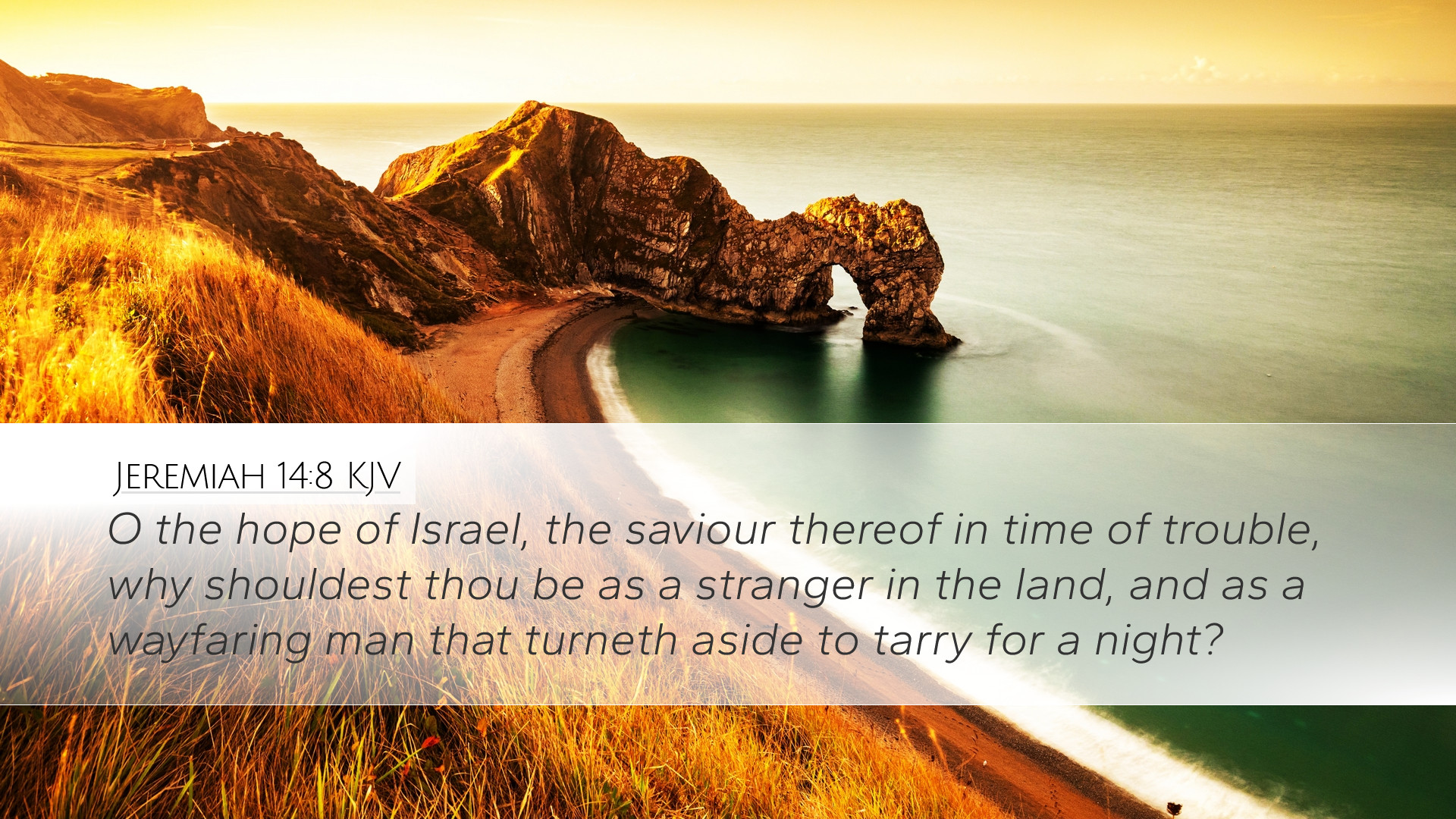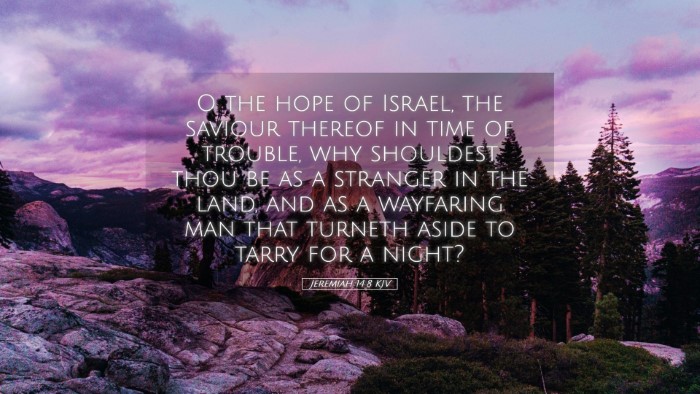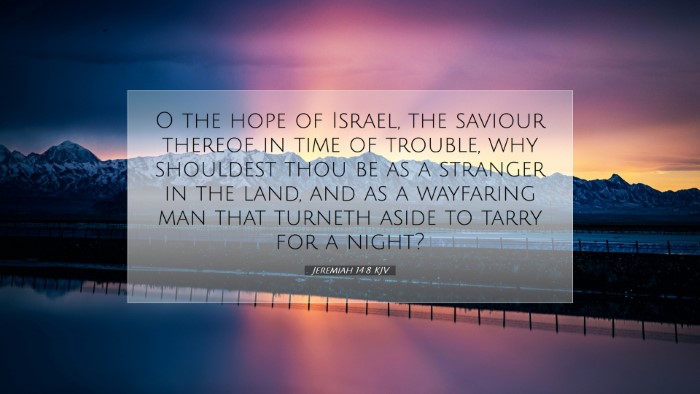Commentary on Jeremiah 14:8
Verse: "O thou hope of Israel, the savior thereof in time of trouble, why shouldest thou be as a stranger in the land, and as a wayfaring man that turneth aside to tarry for a night?" (Jeremiah 14:8 KJV)
Introduction
The verse from Jeremiah reflects a profound lamentation and theological reflection on the nature of God’s relationship with His people during times of crisis. In this context, the people of Judah are experiencing drought and famine, experiencing the dire consequences of their collective sin and abandonment of God. Jeremiah's rhetorical questioning reveals a deep sense of despair and a longing for God's salvific presence.
Theological Significance
Jeremiah's title for God as "the hope of Israel" signifies not only a title of reverence but encapsulates the Israelites' understanding of their identity as chosen people under God’s protection. This hope, however, seems distant in their times of suffering.
- Divine Address: Jeremiah addresses God directly, underscoring a significant relationship that, despite their sins, allows for such candid dialogue.
- Expectation vs. Reality: There is a stark contrast between the expectation of divine intervention as the savior and the perceived silence and distance of God amidst their troubles.
Insights from Commentaries
Matthew Henry's Commentary
Matthew Henry emphasizes the desperation felt by the people of Judah. He interprets "the hope of Israel" as an acknowledgment of God’s previous acts of redemption and protection:
- God's Role: God is seen as the consistent savior in the midst of troubles, yet Henry notes, this verse indicates a feeling that God seems absent in their plight.
- Nature of Hope: Henry expounds on hope being intricately tied to God's presence. Here, hope is portrayed with a sense of urgency; the people plead for God to act as He once did.
Albert Barnes' Notes
Albert Barnes provides further elucidation on the metaphorical language employed in this verse:
- As a Stranger: Barnes interprets the comparison of God to a "stranger" as indicative of how the Israelites felt abandoned by God—someone who temporarily visits but does not deeply involve themselves in the relationship.
- Wayfaring Man: The notion of God as a "wayfaring man" highlights the transitory aspect of grace, suggesting that God's presence should not feel temporary but permanent.
Adam Clarke's Commentary
Adam Clarke brings attention to the emotional weight behind the plea of Jeremiah, noting the communal anguish experienced by the Israelites:
- Communal Lament: Clarke highlights that this verse serves not only as a personal distress but as the collective cry of a nation in crisis.
- Understanding of Time: Clarke points out the sense of urgency in the statement "in time of trouble," illustrating that the perception of time in suffering changes significantly for those enduring it.
Pastoral Applications
For pastors and theologians, Jeremiah 14:8 serves as a poignant reminder of the nature of God's character in relation to human suffering:
- Encouragement in Despair: This verse offers a means to comfort congregants who feel God is distant; it emphasizes the importance of bringing our feelings of abandonment to God.
- Hope amidst Trials: The understanding of God as "the hope of Israel" can be a point of encouragement. Pastoral care can be directed towards reminding believers that God’s identity as savior remains unchanged, even amid suffering.
- The Importance of Lament: Encouraging open dialogue with God, like Jeremiah did, fosters a healthy spiritual life and allows for grieving and asking hard questions.
Conclusion
Jeremiah 14:8 encapsulates a critical tension within the faithful life: the sense of God as our hope contrasted with the feelings of abandonment during trials. The insights derived from esteemed biblical scholars like Matthew Henry, Albert Barnes, and Adam Clarke reinforce the need for understanding God's eternal presence amidst temporal suffering. This verse serves as an invitation for ministers, students, and scholars alike to delve deeper into the rich interplay of hope, faith, and the human experience of divine silence, ultimately enriching their theological framework and pastoral approach.


